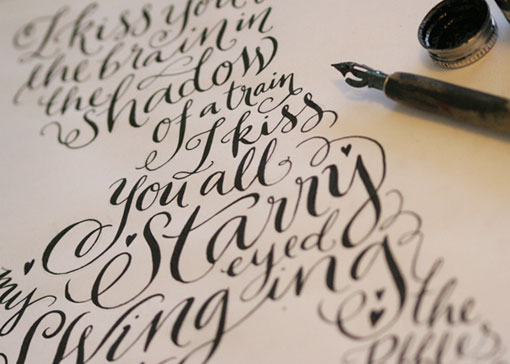Back in 2011, I had been thinking about starting a blog for so long that I just went, screw it, grabbed the first idea that appealed to be, bought a domain name and got started. The blog was called Indie Press Review and its raison d’être was to review and plug independent works. I was just warming up to the idea that self- and indie-publishing was a good thing for the industry as a whole and wanted to contribute to the revolution.
I got a warm reception from the independent writing community on Facebook (a chance connection led to my first lead and Indie Writers Unite), and so armed with my first review copies ever, I dove right in.
It was a little underwhelming.
I had been secretly hoping, I think, to find works of the calibre that I had read in the fanfiction world,in which I had already dabbled in the past. I found instead writers who were overwhelmingly passionate about their work but who didn’t have the patience or the resources or the community to find an editor they could trust, which was devastating, and also the main reason I had been slow to warm to the idea of self-publishing. Editors, I feel, make the world go ’round. They help us as writers to say what we want to say, help us to find our voices, help us to distill the truth of what we’re trying to say from the crap of how we think we should say it. In the real world, I’ve worked as both a writer and an editor, and I have to say, you can’t really have one without the other, and I know better than to trust myself to do both. There’s a reason why Faulkner famously said, “In writing, you must kill all your darlings.” Not words. Darlings. Self-editing is hard.
So Indie Press Review limped along, battered about by my struggles to find my voice, my focus, my reason for writing. I thought I had to have it all from day one, so I elected to wait until everything fell into place, posting barely once a month, until I realised that everything wasn’t going to fall into place, and maybe I should mould my blog to fit me rather than moulding myself to fit the idea I had of the perfect blog.
So I reserved this little corner of the internet, and began again. I went back to the start, in all ways, except this time I had a little more focus and a little more of my voice. I gave myself freedom to write about the things I wanted to write about, like fresh summer sangria and comic books and pretentious literary fiction. I’ve mostly stopped trying to live my life like a blog post, and instead filter bits of my life through my blog. Every time I post I feel like I have a little more focus; I hear my own voice with a little more clarity; I’m a little more convinced that what I have to say is worthwhile.
Three years ago I wanted so badly to have something to say that I reserved a corner of the internet and tried to mould my voice to the space that I thought was available. This year I realised that I’d found what I wanted to say, and where I wanted to say it. So thanks, dear Reader, for sticking with me. Even if you’ve only been around for a little while, every one of you has made this journey worthwhile.












